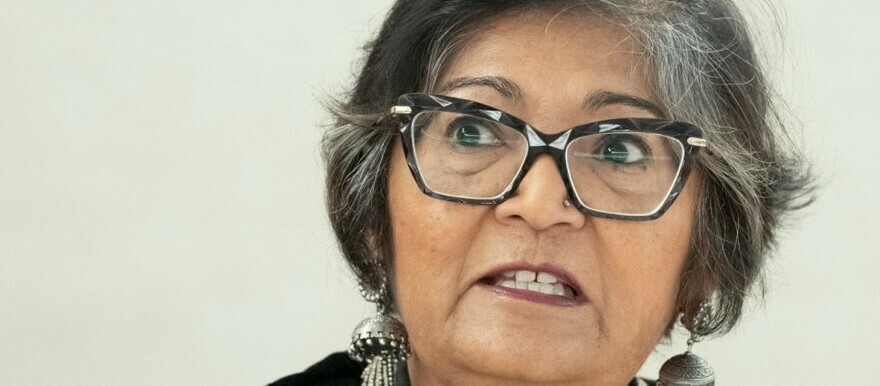UN Human Rights Commissioner Carlos Castresana on Friday issued a stark warning about the dysfunctional judiciary in South Sudan, emphasizing the crucial role of effective justice during armed conflicts. Adding to the urgency, Yasmin Sooka, Chairperson of the Commission on Human Rights in South Sudan, has called for accountability, revealing the compilation of over 100 dossiers implicating individuals in crimes.
The UN Human Rights Commission expressed these concerns over South Sudan’s lack of an independent judiciary system to address potential issues, particularly with elections slated for December. Commissioner Carlos Castresana is currently in the country with his team for their 12th visit to evaluate human rights situation.
Carlos Castresana, a commissioner and prosecutor in the UN Human Rights Commission, emphasized the critical role of effective justice during armed conflicts in any transitional process. He stated, “Without it, you will undoubtedly see an increase in violence and corruption. Unfortunately, the reality in South Sudan is that its judiciary is not functioning.”
Castresana pointed out, “The judiciary is severely under-resourced, lacking the necessary funds and personnel for territorial distribution, impartiality, and independence. In many parts of the country, it lacks an effective presence.”
During a recent visit to Jonglei, the largest state, Castresana highlighted a concerning situation, saying, “No High Court judge is in place, making the prosecution of rape and murder virtually impossible in regular courts.”
“The persistence of widespread sexual and gender-based violence, including abductions, is directly linked to the absence of rule of law institutions capable of addressing these crimes,” Castresana added.
For her part, Yasmin Sooka, Chairperson of the Commission on Human Rights in South Sudan, brought attention to a less-discussed aspect of their mandate – the confidential mandate. She clarified that their responsibility includes collecting and preserving evidence for future transmission to the Hybrid Court prosecutor and the transitional justice mechanisms outlined in Chapter Five of the Revitalized Agreement on the Resolution of the Conflict in South Sudan (R-ARCISS).
“Since 2017, we have compiled over 100 dossiers of individuals of interest implicated in crimes, potentially having command or superior responsibility for these offenses. These dossiers include contextual information, the crime base, and linkage evidence,” Yasmin shared.
“Confidential details were first disclosed in one of our reports, particularly the impunity report published last year, where we named several individuals we considered implicated. We awaited the government’s response, hoping they would take action and remove these individuals from their positions,” Yasmin added.
Regrettably, no such action occurred. Yasmin highlighted, “Without accountability, even if the details are available, it fosters the belief that one can commit crimes such as killings, rape, sexual violence, and massacres with impunity.”
During discussions with various ministers, Yasmin conveyed the message that addressing these violations is primarily the state’s obligation. She stressed, “The hybrid court can only handle the most serious cases. To truly put an end to these violations, a robust domesticated justice system must be established as the first point of recourse, followed by consideration of the hybrid court.”
“Another critical issue is the evolving nature of abductions, a common thread in our discussions with both government officials and humanitarian workers. Our interviews with numerous girls, most under 15 when abducted, revealed that many were forced into marriages or used for sexual slavery and relocation,” Yasmin disclosed.
“Women’s desperation has prompted escapes from custody, with challenges in bringing their children along. The government, at a local level, acknowledges the difficulty of reuniting families. While initially considered a cultural issue, Yasmin cautioned that it has escalated to a political and serious crime at a national level, requiring careful attention,” she warned. “This is a matter that demands our focus.”




